Moroc is by far the most different place I’ve ever been in. (Yes, the real name of the country is “Moroc.” Someone along the way decided that its name needed to be lengthened for the English language so somehow “Moroc” became “Morocco.”) I realized just days before we arrived in Casablanca that I really knew nothing about Morocco—not its language, its climate, its history, its politics, anything. I had no idea what to expect until our pre-port lecture which gave me only a bit of an idea of what I was about to see in the North African nation.
On arrival to Casablanca all that was in sight were shipyards and mountains of phosphorus exposed to the open air (in case you don’t know, phosphorus particulate matter is not something you want regularly inhaled by the population of your country’s largest city, but there it was regardless). To add to the negative image already painted by Morocco’s largest port, Semester at Sea said they hired a shuttle bus so that we didn’t have to risk the walk through Casablanca’s shady shipyards.
Though intimidating at first, Morocco turned out to be an amazing experience. I went on a trip arranged by Semester at Sea to Marrakech, Morocco’s most visited city, and into the Sahara Desert for a “camel trek” and overnight stay in a nomad tent. It was awesome, just at little unnerving at times and, for lack of a better word, crazy.
The first day in Morocco we went to the “souks” of Marrakech. These are little shops lined up close together in the old part of the city where locals sell crafts and foods, often to tourists like us. I was traveling with three friends of mine and in that moment I’m pretty sure they kept me from being ripped off and/or kidnapped. It was so overwhelming at first—there were people shouting at me in both French and English telling me to “just look,” motorcycles and donkey-drawn wagons whizzing by me in the tiny alleyways, and in every direction there were Moroccans, of whom we were told to always be extremely skeptical. [In the pre-port lecture they said always have your purse on the side away from the street so people in cars couldn’t snatch it as they drive by and they said to never hold plastic bags only by the handles because the plastic could be ripped right out of your fingers.]
We had been told that the locals would really try to rip us off in the souks and that they would barter down to a third of the price they originally suggested, but I still had no idea of the value of anything they were selling. Was a Moroccan teapot really worth 300 dirham as the guy had repeatedly told me was a “very good deal” in his broken English? Clearly no, but being from the US I was not used to negotiating the price of goods I buy. In this hectic situation on the first day, I decided not to buy anything and I am very glad I didn’t. After observing some more experienced barterers and with a little bit of practice I later got a much nicer Moroccan teapot for only 150 dirham (originally suggested to me at a price of 700 dirham). By the last day I was a pro barterer and was getting good deals on souvenirs left and right. Once I had the know-how bartering became quite a fun little game.
On the second day we made the eight hour drive out of Marrakech to the edge of the Sahara Desert. Sleeping with scorpions far away from civilization and any modern medical technology was more comforting than the unnerving drive out there. On the drive we had to pass through the High Atlas Mountains, which are not little Pocono-size hills, on roads that were built quite a long time ago seemingly without any regulatory agency checking up on their safety. There were a few moments when we’d be zooming around a narrow turn, another truck would suddenly appear, and everyone on the bus would gasp as our driver jolted the bus towards the rocky face beside us. After one close-call the tour guide had stopped talking and then two minutes later, without addressing our near death experience, he resumed discussing Islam in Morocco. I regularly found myself contemplating, “okay, if we fell off this edge and I held on reallyyy tight, what are the chances I would survive?” Most of the time I reasoned it wouldn’t even be worth trying to hold on. I’m really not kidding about how intense this drive was though, one of the Life Long Learners even started to cry because she was so afraid. Still, once we arrived safely we gave credit to our driver because he did a pretty good job considering the circumstances.
When we finally reached the Sahara I couldn’t help but notice its resemblance to the Mojave Desert of California. I had been expecting huge white sand dunes but I guess you have to go a lot farther for that—we saw a sign that said “52 days to Timbuktu.” I think that meant by camel, though I’m not entirely sure. I wondered how many people really make the 52 day drive/ride to literally the middle of West Africa/the Sahara Desert. Still, the less-intense desert was a great time. Camel riding was awesome but really a lot like being on a very calm, patient horse. Once we got to our campsite we enjoyed traditional Moroccan cuisine and had time to relax, watch the sunset, go looking for scorpions with blacklights (for some reason they glow neon blue under blacklights), and lay on the rocky sand looking at the stars for over an hour. That may have been my favorite part—there were more stars than I’ve ever seen, so many that I couldn’t even make out any constellations. I had never really spotted the Milky Way before but it was unmistakable out in the Sahara. And I saw five shooting stars in such a short time. It was just so cool. My friends and I couldn’t help but say “I can’t believe we’re in the Sahara Desert right now.” I think we’ll be uttering similar sentiments many times in the next three months.
After getting back to Casablanca I had a field trip with my Sustainable Development class to the local Coca Cola factory. It was pretty much your standard factory, but it was really cool to have an opportunity to go with a class to see what we’re talking about first hand, and to get to talk to some seemingly important business executives. After trying some of Coke’s Moroccan products I toured around the souks of Casablanca with a pack of strong Semester at Sea guys as my body guards. I was later very glad I had brought those guys along. My “extended family” on the ship (one of the nurses and her fifteen year old daughter) had been navigating the same souks when they were confronted by a local waving a kitchen knife around. Luckily they were wearing their money belt (as we all do, really cool, I know), because the man just ran off with their camera bag and not their passports, credit cards, and cash too. Needless to say they were shaken up but crime is a reality you have to face when traveling in such poor countries, and they were very glad to be back on the ship safe and with their passports.
Now we’re back into classes which isn’t too bad. Though being in the countries having such new experiences is always amazing, it’s still nice every time we have to come back to the ship which really feels like a home to us now. And as good as the Moroccan cuisine was we were definitely ready for some standard “American” food. [I have to admit, on the last day in Morocco a friend and I snuck away to grab some of the local Pizza Hut.] In addition to enjoying the American food here on the ship I am now enjoying my downtime taking afternoon naps; sunbathing on the seventh deck; playing cards, scrabble, and mafia with friends; and watching the Disney movie channel which is usually the only one of our five channels that has anything entertaining on it.
In just three days we’ll be in Ghana! I’m not sure what to expect but I know that Ghana is straight up West Africa so it should be interesting. Wish me luck!
svc
Friday, September 18, 2009
Subscribe to:
Post Comments (Atom)
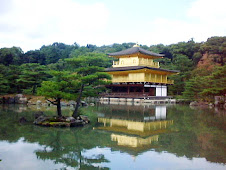

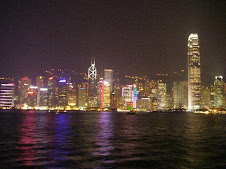
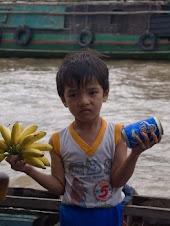
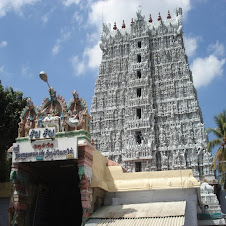
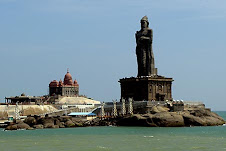
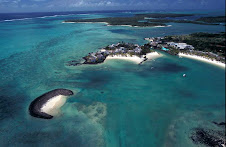


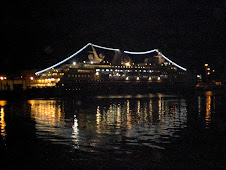
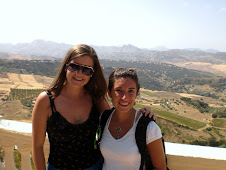

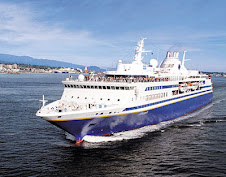
No comments:
Post a Comment